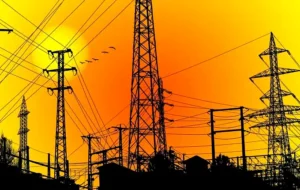
Nigeria’s national power grid has collapsed for the second time in just three days, leaving millions of households and businesses without electricity and disrupting daily life across the nation.
The latest grid failure, occurring in the early hours, has impacted both urban and rural areas, affecting power distribution to key regions and essential services alike.
The frequency of these grid failures has raised widespread concern, with households and businesses in various states reporting sudden power losses and no clear timeline for restoration.
This situation has intensified frustration among citizens, who rely on consistent electricity for both personal and professional needs.
Experts attribute these repeated failures to a range of long-standing issues plaguing Nigeria’s power infrastructure. Chronic underinvestment, aging equipment, and inadequate maintenance have all been cited as contributing factors to the grid’s instability.
The repeated disruptions have significantly affected productivity, business operations, and overall quality of life, prompting calls for urgent reforms.
Stakeholders in the power sector are pushing for large-scale investments in infrastructure and a strategic approach to maintenance as essential steps toward stabilizing the grid.
Many also advocate for diversifying Nigeria’s energy sources, suggesting that a mix of renewable energy options could reduce dependency on a single, central grid system.
This shift, they argue, could help prevent future collapses and ensure a more reliable power supply for millions of Nigerians.
With each blackout, the need for a robust, sustainable solution becomes more pressing.
As Nigeria continues to develop economically, addressing these power challenges will be crucial for supporting growth, improving the standard of living, and meeting the demands of a modern, energy-dependent society.
(PoliticsNigeria)



